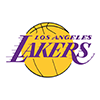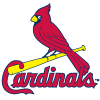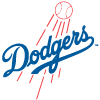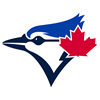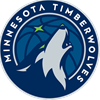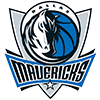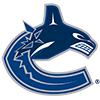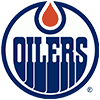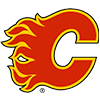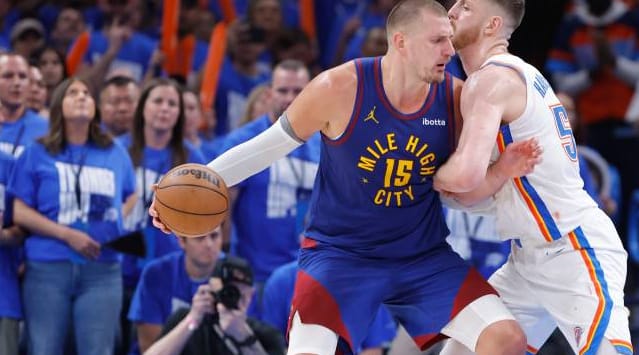After nearly two full months of playoff action, the dust has finally settled on the 2012-2013 NBA season. This year's edition of the playoffs featured a number of memorable performances capped off by Lebron James' title-clinching double-double in Game 7 against the Spurs.
But while greatness is what we've come to expect from the game's premier talent, a number of other players emerged as key contributors during these playoffs, while others failed to produce on the League's biggest stage.
Now looking ahead to next season, we take a look at which players may have bolstered their fantasy value as well as those whose values took a tumble during the 2013 playoffs.
Stock Up
Harrison Barnes, F, Warriors
During the Warriors' captivating playoff run, Barnes flashed the all-around game that earned him comparisons to Kobe Bryant coming out of high school. The Iowa native put up solid regular season numbers (9.2 points, 4.1 rebounds, 25.4 minutes) but took things to another level in the playoffs, pushing his averages to 16.1 points and 6.4 boards. The spike in production is due in large part to a major increase in minutes (38.4), but Barnes was also far more aggressive offensively and had little trouble slotting in as Golden State's de facto power forward following David Lee's injury. And he's just a rookie. Barnes also showed off an improved perimeter game in the playoffs, making 19 three-pointers in the team's 12 playoff games after hitting just 53 in 81 regular season contests.
After nearly two full months of playoff action, the dust has finally settled on the 2012-2013 NBA season. This year's edition of the playoffs featured a number of memorable performances capped off by Lebron James' title-clinching double-double in Game 7 against the Spurs.
But while greatness is what we've come to expect from the game's premier talent, a number of other players emerged as key contributors during these playoffs, while others failed to produce on the League's biggest stage.
Now looking ahead to next season, we take a look at which players may have bolstered their fantasy value as well as those whose values took a tumble during the 2013 playoffs.
Stock Up
Harrison Barnes, F, Warriors
During the Warriors' captivating playoff run, Barnes flashed the all-around game that earned him comparisons to Kobe Bryant coming out of high school. The Iowa native put up solid regular season numbers (9.2 points, 4.1 rebounds, 25.4 minutes) but took things to another level in the playoffs, pushing his averages to 16.1 points and 6.4 boards. The spike in production is due in large part to a major increase in minutes (38.4), but Barnes was also far more aggressive offensively and had little trouble slotting in as Golden State's de facto power forward following David Lee's injury. And he's just a rookie. Barnes also showed off an improved perimeter game in the playoffs, making 19 three-pointers in the team's 12 playoff games after hitting just 53 in 81 regular season contests. His fantasy value is on the rise regardless, but if Jarrett Jack does not return to the Warriors next year, Barnes is a strong candidate to have a breakout season.
Patrick Beverley, G, Rockets
Beverley began the season in the D-League, yet he found himself starting at point guard for the Rockets in their first-round series against Oklahoma City. Jeremy Lin suffered a chest injury that opened the door for Beverley and the 2009 second-round pick did not disappoint. His postseason numbers were nothing overly spectacular (11.8 points, 2.8 assists), but he rebounded at an extremely high rate for an undersized point guard (5.5 per game) and turned the ball over just six times in 200 total minutes. With the Rockets being the perceived frontrunner to land Dwight Howard this offseason, the roster could look very different in 2013-14. Regardless, Beverley showed he's capable of logging significant minutes on a consistent basis, and while he may not start, he can provide excellent value as a backup.
Jimmy Butler, G/F, Bulls
Butler steadily increased his production throughout the regular season and continued to ascend during the playoffs. The second-year swingman out of Marquette averaged 11.7 points, 4.3 boards and 3.0 assists against the Nets in round one and played even better against Miami in the Eastern Conference Semis (15.6 points, 6.4 rebounds). Though his jumper is still a work in progress, Butler shot 40.5 percent from deep in the playoffs and – with the Bulls reportedly shopping Luol Deng once again – he has a good chance to start next season. If that's the case, he could put up major numbers, as he'll likely play close to 40 minutes per game in Tom Thibodeau's notoriously tight rotation.
Paul George, G/F, Pacers
The season-long absence of Danny Granger really allowed George to show off his diverse, all-around game. He increased his scoring average more than five points per game over last season en route to earning his first All-Star appearance. Come playoff time, George raised his game to another level, becoming a more efficient shooter (43.0 percent) and typically defending the opponent's best player. George averaged 41.1 minutes per game (that's a lot) during the team's 19 playoff contests and scored in double-figures in all but two of them. Though the Pacers fell just short of reaching the NBA Finals, George definitively proved that he is capable of being the primary option for an elite team. Granger's return next season could create an interesting dynamic, however, as the Pacers will now have two All-Star caliber wings with similar styles of play. It is unlikely that George will be asked to defer to the veteran, though, as the 23-year-old appears to be a perennial All-Star in the making.
Danny Green, G, Spurs
Perhaps the most obvious player on this list, Green followed up a pedestrian regular season (10.5 points, 3.1 rebounds, 44.8% FG) with a monster postseason in which he shot lights-out from beyond the arc and built a strong Finals MVP case had San Antonio been able to close it out. The former D-Leaguer hit 55 threes over the team's 21 playoff games and set a Finals record with 27 treys. Though he struggled mightily in Games 6 and 7 (2-for-19 FG), Green's confidence heading into next season has to be at an all-time high. The question will be how Green handles having significant expectations placed on him for the first time in his NBA career.
Jeff Green, F, Celtics
"Uncle Jeff," as he's known in the Twitter universe, got off to a slow start (8.7 points, 2.5 rebounds in November) but his numbers improved as the season progressed (17.6 points, 4.8 rebounds, 48.8% FG in March). That trend continued into the playoffs, where Green played his best basketball of the season, averaging 20.3 points, 5.3 rebounds and 2.3 assists to go with shooting 45.5% from three-point range. With Kevin Garnett and Paul Pierce no longer in Beantown, Green will need to be the go-to guy for the Celtics next season. And while the team's record likely won't be anything to marvel at, Green's numbers should take a major leap.
Roy Hibbert, C, Pacers
After a dreadful start to the year (9.3 points, 8.1 rebounds, 39% FG in Nov. and Dec.), Hibbert parlayed a strong finish to the regular season into a phenomenal playoff performance. The former Georgetown star was fairly quiet in the team's first-round ousting of the Hawks, but posted averages of 13.3 points, 3.2 blocks and 10.3 rebounds while shutting down Tyson Chandler (6.2 points, 6.0 rebounds, 4.8 fouls) and the Knicks in the second round. Hibbert followed up by playing arguably his best seven-game stretch of the season against Miami's undersized front line, scoring 22.1 points per game(on 55.7% FG) to go with 10.4 rebounds in the Eastern Conference finals. Hibbert was noticeably more confident and intense during the postseason run, and at just 26 years old, he will be entering what many consider to be the prime of his career in 2013-14.
Jarrett Jack, G, Warriors
Jack followed up a productive regular season (12.9 points, 3.1 rebounds, 5.6 assists) as Golden State's sixth man with a thoroughly stellar playoff performance. The 29-year-old increased his scoring average to 17.2 points per game, while still providing 4.4 rebounds and 4.7 assists. He was able to get to the line more effectively (4.0 attempts per game, 2.5 during regular season) and shot an impressive 50.6 percent from the field, despite struggling from beyond the arc (29.2 percent postseason, 40.4 percent regular season). The Warriors would love to bring Jack back next season, but cap issues may land him in another uniform. If he can pick up where he left off in the playoffs, Jack could be one of the better all-around options at the guard spot.
Reggie Jackson, G, Thunder
Like Beverley, Jackson seized the opportunity to step up in place of an injured starter. When Russell Westbrook went down in Game 2 of the team's first-round series against Houston, Jackson immediately stepped in and showed no apprehension, scoring in double-figures in each of the nine playoff games he started. Jackson averaged 5.3 points, 2.4 rebounds and 1.7 assists during the regular season and upped his output to 13.9 points (on 47.9% FG), 4.9 boards and 3.6 dimes in the postseason. Westbrook's return will relegate Jackson to a backup role once again next season, but expect to see the two on the court together at times, as Jackson has enough size (6-3, 210) to play the shooting guard spot – a weakness for OKC –against certain lineups.
Kawhi Leonard, F, Spurs
In just his second NBA season, Leonard used the playoffs as his coming out party. The lanky forward was arguably the Spurs' most consistent player throughout the postseason and he proved to be an elite defender and dependable 3-point shooter. The 22-year-old averaged 11.9 points, 6.0 rebounds and 1.7 steals during the regular season but was often overshadowed by the Spurs' "Big Three." Leonard was able to take advantage of the national spotlight during the playoffs, increasing his production to 13.5 points and 9.0 rebounds on 54.5 percent shooting. The former San Diego State star scored in double-figures in all but three of San Antonio's 21 playoff contests, and he shined brightest in the Finals, where he posted four double-doubles, including a 19-point, 16-board outburst in Game 7. While Leonard may never develop into a Paul George type of player (think more Shawn Marion) who can create his own shot, he's one of the best young forwards in the league and should only improve with experience. The scariest thing about Leonard's production is that he was the fourth option on this year's squad, and as the franchise transitions from the Duncan-Parker-Ginobili era over the next few seasons, Leonard will take on a more significant offensive role, and his numbers will reflect that.
Check Status
Chris Bosh, F/C, Heat
Bosh received his fair share of criticism this postseason – and rightfully so – but the 29-year-old was not nearly as horrific as fans were led to believe. Yes, he failed to top 20 points in any of the Heat's 23 playoff contests, but this was due in large part to the fact that he simply was not attempting very many shots. Bosh averaged 12.3 field goal attempts during the regular season, a number that shrunk to 10.4 during the playoffs. And in the Eastern Conference Semifinals against Indiana – the series he was most criticized for – Bosh attempted just 9.9 field goals per game. At this point in his career, Bosh is primarily a jump shooter who doesn't look for much else offensively. And when those 12-to-22 footers aren't falling, his production takes a nosedive. Still, he increased his rebounding numbers (6.8 to 7.3) and provided solid interior defense throughout the playoffs. As disappointing as Bosh may have looked this postseason, don't expect much of a drop-off next season as he chases his third straight ring.
Stephen Curry, G, Warriors
These playoffs were billed as Curry's initiation into the elite tier of NBA stars. Sure, he had some monster games filled with some unbelievable shots, but Curry's playoff numbers (23.4 points, 8.1 assists, 43.4% FG, 39.6% 3Pt) were actually no better than his regular season output (22.9 points, 6.9 assists, 45.1% FG, 45.3% 3Pt). The increase in assists is encouraging, but his shooting percentages suffered due to nagging injuries and volume shooting. Curry is certainly a great NBA player already – though he's never been an All-Star – but he's still too fragile and inconsistent from inside the arc to expect him to have another significant leap in production next season.
Dwyane Wade, G, Heat
Coming off of the most efficient (52.1% FG) regular season of his career, Wade was also on the receiving end of plenty of criticism throughout the playoffs. Wade averaged 21.2 points, 5.0 rebounds and 5.1 assists in 69 regular season games, but it was immediately evident – even in the Milwaukee series – that he was banged up during the playoffs. Heading into the Finals, Wade had topped 20 points just twice in 16 games, and he was struggling on both ends of the floor. However, he appeared rejuvenated during the Finals, where he averaged 19.6 points, 4.0 rebounds and 4.6 assists on 46.7 percent shooting. Still, plenty of questions remain regarding Wade's effectiveness going forward. Even if he returns to full strength next year, he'll be 32 in January and has never played a full NBA season. At this point, it would be foolish to write Wade off after a third NBA title – he faced the same questions last offseason – but his fantasy value looks to be somewhat of a wild card heading into 2013-14.
Stock Down
Tyson Chandler, C, Knicks
After a solid regular season in which he averaged a double-double for the second time in his 12-year career, Chandler simply looked lost in the Knicks' two series against the Celtics and Pacers. He averaged 5.2 points and 7.3 rebounds during the postseason, scoring in double figures just once. Chandler attempted nearly two fewer shots per game in the playoffs and nearly three fewer free throws per game. He was also in foul trouble in nearly every contest and had trouble containing the Pacers' Roy Hibbert, whom he posted two double-doubles against earlier in the season. All is not lost for Chandler, who will be 31 years old next season, but if his postseason performance is any indication, his value looks to be on the decline.
Manu Ginobili, G, Spurs
Surprise, surprise. To put it lightly, GInobili struggled this postseason. In 21 games, he finished with averages of 11.5 points, 5.0 assists and 3.7 rebounds on 39.9 percent shooting. What was perhaps most concerning was the notable absence of what Ginobili is known for – clutch plays. Aside from a game-winning three-pointer in Game 1 of the Western Conference semis, Ginobili struggled in crunch time, committing uncharacteristic turnovers (including 12 total in Games 6 and 7 of the Finals) and forcing ill-advised shots. In retrospect, the expectations placed on the soon-to-be-36-year-old may have been a bit unrealistic, as he averaged just 11.8 points and 42.5 percent shooting in 23.2 minutes during the regular season. If Ginobili opts to return to the NBA next season, it will likely be in a limited role with reduced fantasy value.
DeAndre Jordan, C, Clippers
Like Chandler, Jordan enjoyed a productive regular season but looked out of his element come playoff time. The 24-year-old leaping extraordinaire averaged a career-high 8.8 points on 64.3 percent shooting during the regular season, then saw those numbers sink to 3.7 points on 45.5 percent shooting in six playoff games. Though he didn't attempt a ton of shots – and he was defended by the defensive player of the year – a near 20 point drop in field goal percentage is certainly concerning. Even more troubling were his woes at the charity stripe. After showing improvement during his first four seasons, Jordan's free-throw percentage plummeted to a nightmarish 38.6 percent in 2012-13.
J.R. Smith, G, Knicks
Just when it appeared the mercurial Sixth Man of the Year Award winner had turned the corner, Smith snapped back to his inefficient ways of old. He averaged 18.1 points and 5.3 rebounds – both career highs – on 42.2 percent shooting (35.6% 3Pt) during the regular season. However, Smith seemingly lost his shooting touch come playoff time, as his percentages sunk to 27.3 percent from deep and 33.1 percent overall. Still just 27 years old, Smith has plenty of time to improve, but his postseason performance certainly did not help his stock as he heads into free agency this summer. The role he plays with his new team could go a long way in predicting his fantasy value, as he appeared to thrive as the sixth man in New York this season.
Tiago Splitter, C, Spurs
Noticing a trend here? Another athletic, defensive-minded center, Splitter was exposed a bit during the Spurs' run to the Finals. He played well in rounds two and three against the Warriors and Grizzlies, respectively, but had a disappointing Finals series in which his playing time diminished and he averaged nearly as many fouls (1.6) as rebounds (2.0). Though Splitter has played just three NBA seasons, he's already 28 years old and has not shown much improvement offensively. The restricted free agent is still a solid option for rebounds – and could have more value in long-term leagues if the Spurs sign him to a new deal, as his role should increase whenever Tim Duncan decides to retire – but he does not block many shots (0.8 per game), and it would be unrealistic to expect a significant leap in offensive production.







